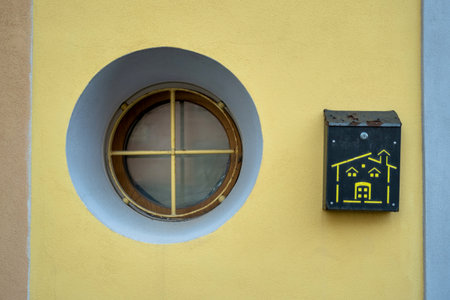Introduction to Vastu and Its Importance for Homes
Vastu Shastra, an ancient Indian science of architecture, holds significant value in shaping the energy and prosperity within our homes. Rooted deeply in Indian tradition, Vastu guides us to harmonise our living spaces with natural elements and cosmic forces. For countless families across India, following Vastu principles is not just a cultural practice but a proven path to inviting positivity, financial growth, and overall well-being into their lives. Specifically, when it comes to residential buildings, areas like balconies and ventilation play a crucial role in channeling fresh air and sunlight—two vital sources of positive prana (life energy). Aligning these spaces according to Vastu ensures that your home remains vibrant, prosperous, and filled with good vibes. By understanding the fundamentals of Vastu Shastra and mindfully applying its guidelines to balconies and ventilation points, homeowners can experience tangible benefits in health, relationships, and financial stability. This article will explore practical Vastu tips tailored for Indian residential settings, empowering you to create a space where abundance and happiness naturally flourish.
2. Ideal Balcony Placement as per Vastu
When designing a residential building in India, it is essential to consider Vastu Shastra principles for the balcony placement to enhance positive energy flow. The orientation and placement of balconies significantly impact the inflow of natural light, fresh air, and overall harmony within the home. According to Vastu, the direction you choose for your balcony can influence your family’s prosperity, peace, and wellbeing.
Most Auspicious Directions for Balconies
Indian tradition and climate suggest that certain directions are more favorable for balconies than others. Here’s a quick reference table to guide your decision:
| Direction | Vastu Recommendation | Benefits |
|---|---|---|
| East | Highly Recommended | Welcomes morning sunlight, brings positivity and vitality |
| North-East | Most Auspicious | Attracts cosmic energy, enhances prosperity and health |
| North | Recommended | Ensures good ventilation and consistent daylight |
| West | Acceptable with Caution | Might get harsh afternoon sun; use shading elements |
| South or South-West | Avoid if Possible | Can lead to heat buildup and negative energy accumulation |
Indian Climate and Lifestyle Considerations
The Indian subcontinent experiences intense sunlight from the south and west directions; therefore, placing balconies in these orientations may result in overheating during summer months. Conversely, east-facing and north-east-facing balconies maximize the gentle morning sun and cool breezes, which are highly valued in Indian homes for spiritual practices like yoga or morning prayers. This aligns both with traditional Vastu beliefs and practical living comfort.
Key Takeaway for Residential Projects
If you are planning a new home or evaluating an existing space, prioritize balcony placements towards the north-east, east, or north sides. These orientations not only align with Vastu Shastra but also support a healthier lifestyle by optimizing natural light and airflow—essentials for vibrant family life in India’s diverse climates.

3. Recommended Materials and Colours for Balconies
When it comes to designing a balcony that radiates positive energy in line with Vastu principles, the selection of materials and colours plays a crucial role. Incorporating Vastu-compliant choices not only enhances the flow of prana (life energy) but also aligns the space with Indian aesthetics and culture.
Vastu-Friendly Materials
Natural materials are highly recommended for balconies as they are believed to attract harmony and prosperity. Opt for wooden or bamboo furniture, terracotta pots, and natural stone flooring like Kota or marble. These elements help maintain a connection with nature, promoting calmness and grounding energies. Avoid using too much metal or synthetic materials, as they may disrupt the natural flow of positive vibrations.
Ideal Colour Palette
The colours you choose for your balcony walls, railings, and décor can significantly impact the energy of the space. According to Vastu Shastra, soft shades such as light green, earthy brown, beige, cream, or subtle yellows are ideal. These colours evoke tranquillity and blend seamlessly with Indian traditions. For balcony plants or accessories, you can introduce pops of vibrant hues like marigold orange or auspicious red to energize the environment without overwhelming it.
Cultural Resonance
Incorporate elements that celebrate Indian craftsmanship and heritage—such as hand-painted clay pots, traditional jharokha-style hangings, or Madhubani art pieces—to create a sense of belonging and cultural pride. These details not only beautify your balcony but also reinforce its spiritual significance in daily life.
Balancing Aesthetics and Energy
While aesthetics are important, always prioritize balance in design. Ensure that the chosen materials and colours do not clash but rather complement each other to create an inviting sanctuary. By following these Vastu tips, your residential balcony will serve as a vibrant source of positivity, serenity, and good fortune.
4. Ventilation Tips to Attract Positive Energy
Proper ventilation is one of the core principles of Vastu Shastra, especially when it comes to Indian residential buildings where climate and cultural preferences play a significant role. The flow of fresh air and sunlight not only ensures good health but also attracts positive energy into your home. Here are some best practices tailored for Indian households, aligning with Vastu wisdom:
Best Practices for Natural Air Flow and Sunlight
- Window Placement: Place larger windows on the north and east walls to maximize morning sunlight and ensure cool breeze circulation. Avoid keeping windows permanently closed as stagnant air may invite negative vibes.
- Cross Ventilation: Ensure every room, especially living rooms and bedrooms, have windows or ventilators on opposite walls to promote effective cross ventilation. This keeps the environment fresh and energetic.
- Use of Jaalis (Latticework): Traditional Indian jaalis can be incorporated into balconies and ventilators. They diffuse harsh sunlight while allowing gentle airflow, maintaining privacy without blocking positive energy.
- Sunlight Entry: South and west-facing openings should be minimal or fitted with sunshades to avoid excessive heat, in line with Vastu recommendations.
Vastu-Aligned Placement of Windows and Ventilators
| Direction | Recommended Window/Ventilator Placement | Vastu Significance |
|---|---|---|
| North | Large windows, open design | Invites prosperity and positive energy |
| East | Tall, wide windows or balcony doors | Brings health, vitality, and new beginnings through morning sun |
| South | Minimal openings, use ventilators only if needed | Avoids overheating, maintains energy balance |
| West | Small windows with shades/curtains | Keeps harsh afternoon sun out, preserves peace at home |
Practical Tips for Indian Households
- Avoid Clutter: Keep windowsills clear of clutter to allow unhindered airflow.
- Aromatic Plants: Place Tulsi (Holy Basil) or other aromatic plants near ventilators and balconies; they purify air and enhance positive vibrations.
- Naturally Scented Air: Use agarbattis (incense sticks) or camphor near ventilation points in the morning to spiritually energise the incoming air.
- Curtain Choices: Opt for light cotton curtains that filter dust but do not block light or wind completely—perfect for the Indian climate.
Key Takeaway for Balconies & Ventilation in Indian Homes:
A well-ventilated space designed as per Vastu brings not just physical comfort but ushers in prosperity, good health, and harmony within the family. By following these tips specifically curated for Indian contexts—blending tradition with practical design—you align your living spaces with natures abundant energies.
5. Decorating Your Balcony: Plants and Elements
In the Indian context, decorating your balcony is not just about aesthetics—it is also about inviting Shubh (auspicious) energy into your living space, as guided by Vastu Shastra principles. The selection of plants, water features, and decorative elements can have a profound impact on the positive flow of energy in your residential building.
Choosing Vastu-Compliant Plants
According to Vastu, certain plants are highly auspicious for balconies. Tulsi (Holy Basil) is considered sacred and is believed to purify the environment while attracting prosperity and good health. Bamboo plants, when placed in the east or southeast direction, are known to bring growth and wealth. Avoid thorny plants such as cactus, as they are thought to invite negative energy. Instead, opt for flowering plants like jasmine or marigold, which are both beautiful and Shubh.
Incorporating Water Features
If you wish to add a water element to your balcony décor, a small fountain or water bowl can be an excellent choice. Place it in the north or northeast direction for enhanced positivity, as per Vastu guidance. Flowing water symbolizes abundance and helps maintain the balance of energies. Ensure that water features are kept clean and that the water flows continuously, as stagnant water can create obstacles in fortune and well-being.
Selecting Auspicious Décor
When it comes to balcony décor, choose items that embody Indian culture and tradition. Wind chimes made from metal or bamboo are highly recommended for balconies; their melodious sounds dispel negativity and attract prosperity when hung in the north-west or west direction. You may also include traditional terracotta pots, brass urns, or diyas (oil lamps) to enhance the spiritual ambiance.
Maintaining Harmony in Design
While decorating, ensure that all elements remain uncluttered and harmonious. Avoid overcrowding your balcony with too many objects, which can block the free flow of positive prana (life energy). Regularly clean and maintain your plants and décor items to keep the environment vibrant and full of life.
Cultural Touches for Indian Homes
Add personal touches such as rangoli designs at the entrance of your balcony during festivals or auspicious days. This not only beautifies your space but also invites blessings from Goddess Lakshmi according to Indian tradition.
By thoughtfully selecting Vastu-compliant plants, water features, and décor rooted in Indian culture, you can transform your balcony into a powerful zone for positivity, prosperity, and peace within your home.
6. Balcony and Ventilation Dos and Don’ts
Practical Vastu Guidelines for Indian Urban Apartments & Bungalows
When designing or maintaining your balcony and ventilation, following Vastu Shastra principles can make a significant difference in attracting positive energy, prosperity, and good health to your home. Here are practical dos and don’ts specially tailored for Indian urban apartments and bungalows:
Dos
- East & North Balconies: Always prefer constructing balconies in the East or North directions, as these zones welcome maximum sunlight and fresh air—both essential for vibrant energy and well-being.
- Open & Clean Spaces: Keep your balcony clutter-free and well-ventilated. Regularly clean the area, remove dried plants, broken pots, or unused items that can block energy flow.
- Natural Elements: Add green plants such as Tulsi, money plant, or bamboo to attract positivity, purify air, and enhance financial prospects.
- Proper Grills & Railings: Use grills or railings with horizontal patterns instead of vertical spikes to promote harmony and safety. Ensure railings are not too high to block airflow.
- Ventilation Windows: Install large windows or ventilators in living spaces facing East or North to maximize daylight entry and maintain air circulation, boosting health and mood.
Don’ts
- Avoid South-West Balconies: Never construct balconies in the South-West direction, as it can lead to instability in family life and finances according to Vastu experts.
- No Heavy Storage: Do not use the balcony as a storeroom for heavy materials, old furniture, or waste. This blocks positive energy and attracts negativity.
- Avoid Closed Spaces: Avoid enclosing balconies with opaque panels or glass without proper air vents; this hinders natural light and airflow which is vital for positive vibrations.
- No Thorny Plants: Refrain from placing thorny or cactus-type plants on the balcony as they are believed to create stress and discord within the household.
- Avoid Broken Decor: Remove any broken wind chimes, decorative pieces, or cracked pots immediately to prevent stagnant energy accumulation.
Cultural Note
Following these simple yet powerful Vastu dos and don’ts not only aligns your living space with age-old Indian wisdom but also enhances comfort, prosperity, and harmony—a must for every modern Indian home seeking holistic growth.
7. Conclusion and Quick Actionable Tips
Bringing Vastu Shastra principles into your residential balcony and ventilation design can truly transform your home’s energy, inviting prosperity and well-being for the entire family. By focusing on direction, cleanliness, and natural elements, Indian homeowners can easily harness the power of positive vibrations. Here are some quick, actionable tips that you can implement without delay:
Summary of Essential Vastu Actions
- Balcony Placement: Always opt for balconies in the North, East, or North-East directions to attract abundant sunlight and fresh air.
- Unobstructed Ventilation: Ensure free movement of air by keeping windows and ventilators clean and clear of obstacles. This helps eliminate stagnant energy.
- Incorporate Greenery: Place Tulsi (Holy Basil), money plants, or bamboo in the balcony to boost positive prana and wealth energy.
- Avoid Clutter: Keep both balconies and ventilation areas neat. Avoid storing junk or broken items here as it blocks good fortune.
- Water Features: Small water fountains in the North-East balcony corner are auspicious and foster harmony.
Quick Steps for Daily Practice
- Open windows each morning to let in fresh air and sunlight.
- Sweep your balcony daily—cleanliness is crucial for good Vastu energy flow.
- Add wind chimes or bells in East-facing balconies to enhance positive vibrations.
Your Path to a Vibrant Home
By adopting these easy Vastu remedies, every Indian homeowner can create a residential space that radiates positivity, abundance, and happiness. Start with small changes today and witness your home blossoming with vibrant energy!

